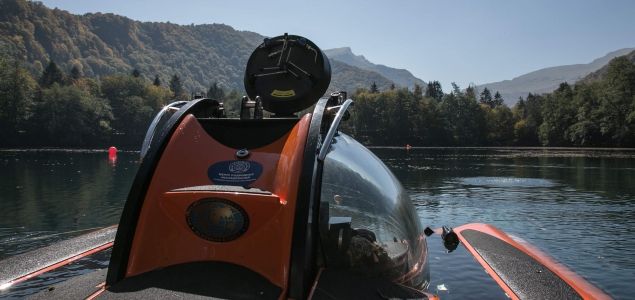Ivan Georgievich Kuznetsov was the first one who started exploring this fascinating object in 1926-1927. For his research, he was awarded an RGS silver medal. But Ivan Kuznetsov and his followers could not find the source feeding the lake, and, of course, they could not reach its bottom (the last mark was 258 m). The second-deep lake karst lake in the world in keeping its secrets. The fact that the only fauna that inhabits this lake is one type of small crustaceans is also posing many questions.
These were 35 memorable expedition days! The lake was kind to us, but from time to time it showed its temper. We learned to understand its mood and accept the suggested corrections to our plans very fast.
Based on the sonar data we created a 3D model of the lake. The data obtained will help to disclose the secrets of the lake’s origin. We estimated the water volume that escapes the lake every day - it is 70 million liters daily. We carried out a hypothesis that there is no main underwater source feeding the lake and we discovered that water was flowing through the cracks and fractures on the bottom which is covered with rocks that have fallen from its’ banks.
We have discovered the new depth of Tserik-Kyol, which is 279 m. Now Russian lake has a chance to become the deepest karst lake in the world, by overcoming its main competitor, the Red lake in Croatia which is 281 m deep.
Data shows that the cave goes down even deeper. But one will get the impression that the lake doesn’t want to reveal all of its secrets, as the cave got covered in fog, right after we started to examine it, thus reducing visibility to none. We decided that we would definitely come back here again, at least to set a new depth record!








